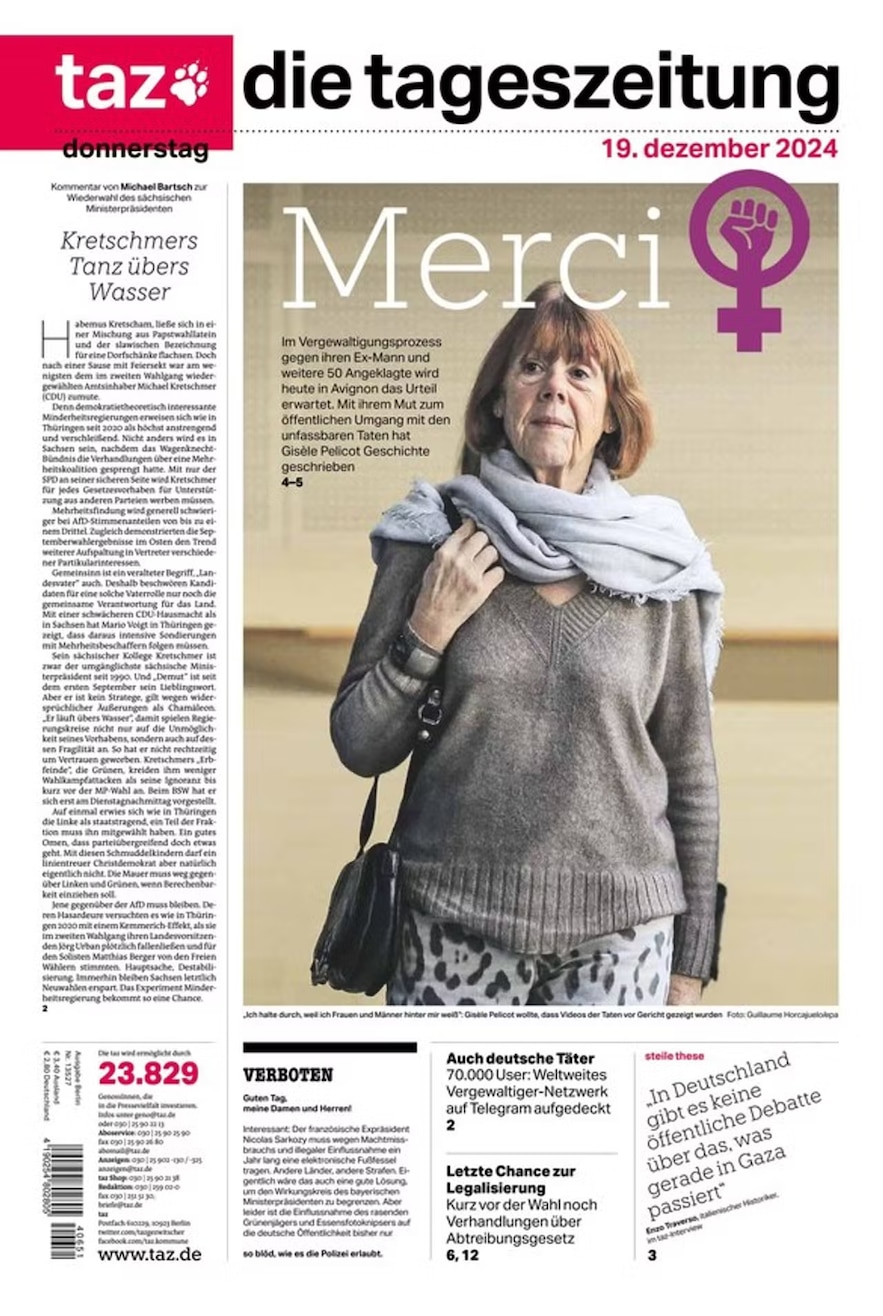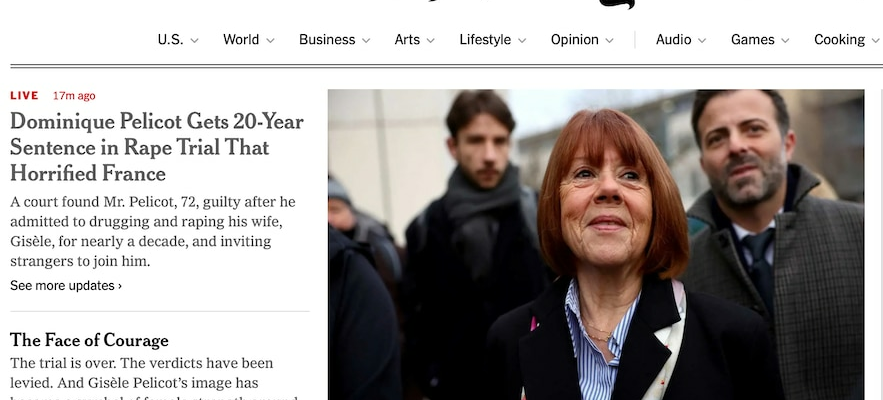Some 180 media present, including 86 foreigners. An “international crowd which exceeds that of the trials of the terrorist attacks of January and November 2015”, according to France Info. Never seen before. Today, after four months of trial, no one is ready to forget the one The New York Times qualified of “face of courage”: Gisèle Pelicot.
This Thursday, December 19 marked the end of the Mazan affair: the Vaucluse criminal court found Dominique Pelicot guilty of aggravated rape, the septuagenarian who admitted to having drugged his wife for nearly a decade and to having invited dozens of strangers to come and rape her. He is sentenced to the maximum sentence: 20 years of criminal imprisonment with a two-thirds security period. In the dock, 50 other men aged 27 to 74 years old. Condemned too. Sentences ranging from two years in prison, two of which are suspended, to 15 years.
“Able to regain control”
“Good morning, good morning.” The Guardian thus begins his live broadcast specifically dedicated to the verdict. CNN, BBC or The New York Times will do the same. Everyone is full of praise when talking about the septuagenarian. “A feminist heroine” for the German weekly Der Spiegel“the most courageous and dignified woman in France”, writes the British newspaper The Times or even “the woman who overturns all the stereotypes attached to feminism”, we can read on the website of the Spanish daily El Mundo. The New York Times even dares the metaphor and compares “this symbol of a collective turning point” to the demonstrator standing in front of the Tiananmen tanks in 1989 or to the “woman in red”, icon of the 2013 protest movement in Turkey. The German daily The Tageszeitung is content with a thank you on the cover, enthroned above the portrait of Gisèle Pelicot.
New York Times front page, Thursday, December 19.
© / The New York Times
A heroization that The New York Times simply justifies. “Rarely has someone who was so objectified, transformed into a rag doll for men to rape, been able to regain control of her own objectification,” writes the daily.
For El Mundothe retiree has indeed succeeded in changing the shame camp. “Victims of sexual violence of all ages and nationalities came to offer her flowers or other gifts, to thank her and to get to know her. […] Before, they were hiding, but thanks to her, it’s over.”
However, Gisèle Pelicot has everything of an “ordinary lady”. Half-heroine, half-retired, as the media like to describe her. “A retired grandmother” for the BBC. “A 72-year-old woman, now retired” and not an “intellectual or political leader” who knew how to “fuel the feminist flame in France” to El Mundo.
Lessons to be learned
“This could just as easily have happened in Germany”, headlines the german current affairs magazine Stern. “Yeah, some may be saying, what can this sad affair that took place in France do to us?”, he writes. “A lot [de choses]because this is not an isolated case”, replies Stern, referring to a case tried at the Erfurt court in which a man is accused of having drugged 17 women, of having raped them and of having filmed his actions. “There is nothing particularly French about the problem,” the magazine concludes.

Front page of the German daily Die Tageszeitung on December 19, 2024.
© / The Tageszeitung
But what lessons will society learn from the Mazan affair? Is she ready to change the paradigm on sexual violence? These are the questions posed the Swiss daily Time. For him, four lessons can be kept in mind: “opening our eyes to “rape culture””, “breaking the cycle of violence”, “taking stock of the scourge of incest” and “inventing new new desires. The magazine asks in particular: “How can so many men be sexually attracted to a sedated woman, in a state close to a coma?”
If these media want to be optimistic about the evolution of society, others are more doubtful. The Times the first. The British daily fears that the Mazan affair has further discouraged victims of sexual violence from testifying. “The defense has it [Gisèle Pelicot] accused of not being suspicious enough, of being an alcoholic, of not crying enough in court. They suggested she might be responsible for the crimes. […] By making women understand […] how men, whose attacks are filmed, can still find excuses, this could dissuade women from seeking justice”, worries the newspaper, recalling that in the United Kingdom, only 3% of reported rapes are subject to of a trial.
In France, 86% of complaints for sexual abuse and 94% of rapes were dismissed between 2012 and 2021 according to figures from the Institute of Public Policies. But one thing is certain, El Mundo“Gisèle Pelicot has put shame and dignity in their rightful place”.
